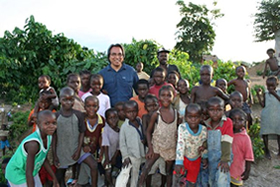
Mandate-holders carry out country visits to assess the situation of human rights at the national level : at the request of a mandate-holder, the Government will send an invitation for a fact-finding mission. Some countries have issued standing invitations, which means that they are, in principle, prepared to receive a visit from any thematic mandate-holder.
During such missions, the experts assess the general human rights situation in a given country, as well as the specific institutional, legal, judicial, administrative and de facto situation under their respective mandates. They will meet with national and local authorities, including members of the judiciary and parliamentarians; members of the national human rights institution, if applicable; non-governmental organizations, civil society organizations and victims of human rights violations; the UN and other inter-governmental agencies; and the press when giving a press-conference at the end of the mission.
Country visits’ findings, conclusions and recommendations by special procedures are published in mission reports to the Human Rights Council (All special procedures country-related information can also be found in the Universal Human Rights Index.
Terms of Reference for Fact-finding missions by Special Procedures
The terms of reference for country visits were adopted at the fourth Annual Meeting of Special Procedures ( E/CN.4/1998/45) and are intended to guide Governments in the conduct of the visit. During missions, Special Procedures mandate-holders and United Nations staff accompanying them, should be given the following guarantees and facilities by the Government that invited them to visit its country:
(a) Freedom of movement in the whole country, including facilitation of transport, in particular to restricted areas;
(b) Freedom of inquiry, in particular as regards:
(i) Access to all prisons, detention centres and places of interrogation;
(ii) Contacts with central and local authorities of all branches of government;
(iii) Contacts with representatives of non-governmental organizations, other private institutions and the media;
(iv) Confidential and unsupervised contact with witnesses and other private persons, including persons deprived of their liberty, considered necessary to fulfil the mandate of the special rapporteur; and
(v) Full access to all documentary material relevant to the mandate;
(c) Assurance by the Government that persons, whether officials or private individuals, who have been in contact with the special rapporteur/representative in relation to the mandate, will not, as a result, suffer threats, harassment or punishment or be subjected to judicial proceedings;
(d) Appropriate security arrangements without, however, restricting the freedom of movement and inquiry referred to above.
